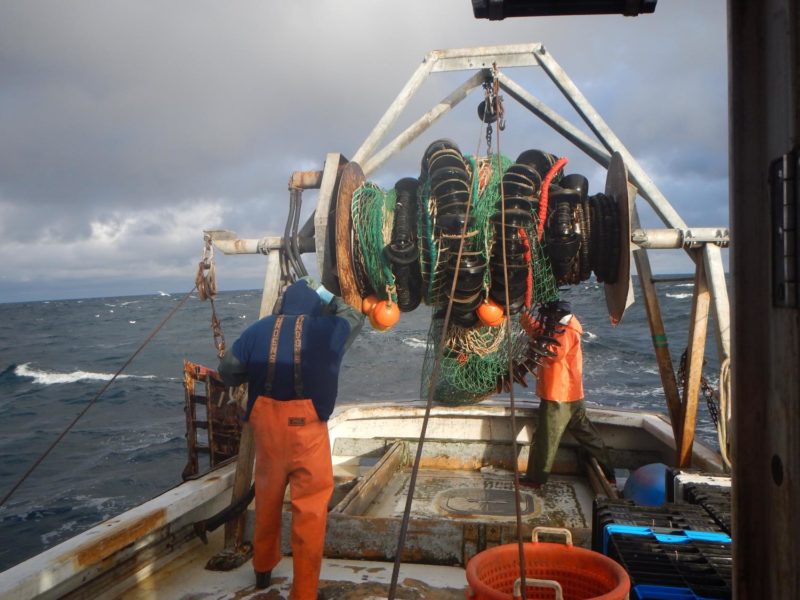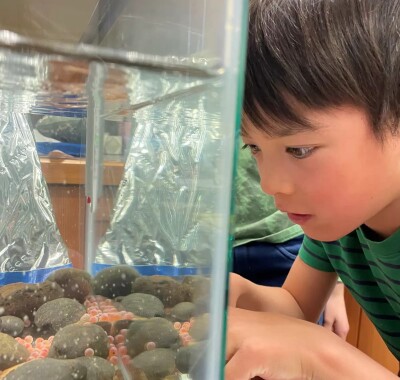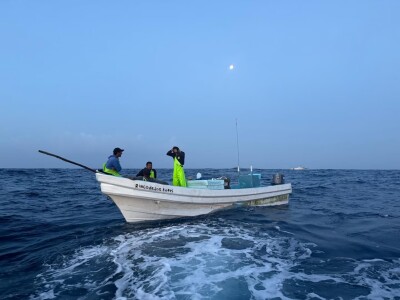Years of fishery failures and tightening restrictions on the Gulf of Maine groundfish fleet have put severe psychological strain on fishermen and chronic disruption to the social fabric of New England fishing communities, according to a team of academic researchers.
“For instance, our results indicate that 62 percent of captains self-reported severe or moderate psychological distress one year after the crisis began, and these patterns have persisted for five years,” the report states.
Among its conclusions, the report strongly recommends more monitoring and managing of social effects and “human well-being” beyond economic analysis, to moderate the adverse effects on communities of fisheries disruptions like the long-running New England groundfish struggle.
“This particular fishing fleet has been through so much pain,” said Steven Scyphers, an assistant professor of marine and environmental studies at Northeastern and lead author of the study report.
The intensity of those effects could be one reason why the researchers got good cooperation from fishermen over the years, including telephone surveying during winter and early spring months before the annual setting of limits for the May start of groundfish seasons.
“The survey return rate in some years was 40 percent or better, which is amazing,” said Scyphers.
The researchers date the start of the crisis to the September 2012 federal declaration of a fishery disaster in the region, following a grim Gulf of Maine cod stock assessment and then a 22 percent catch reduction imposed by NOAA. The fleet was slammed again by a further 75 percent cut in 2013.
That kind of disaster is markedly different from how people typically respond to a hurricane, when “communities struck by natural hazards typically rebound faster because high social cohesion and a supportive community response promote recovery,” the researchers pointed out.
But after a “human-caused disaster,” communities are typically riven by arguments, leading to “longer-term trauma and sociological problems as various parties dispute” causes, effects and blame, they added.
“While fisheries declines can be clearly driven by both natural and human processes, the groundfish failure shares many traits with human-caused or contested disasters,” the researchers wrote.
“We found that low levels of trust in fisheries management was the most powerful predictor of both initial and chronic psychological distress,” they wrote. Those effects were most severe for fishermen and families who had no secondary work or sources of incomes, and those with dependent children and relatives.
The origins of the New England study actually go back “with comparisons to the Exxon Valdez (oil spill) years and years ago,” Scyphers said.
Co-author J. Steven Picou, a professor of sociology and director of the Coastal Resource and Resiliency Center at the University of Alabama, extensively studied the community effects of the 1989 tanker grounding in Prince William Sound for a quarter-century. His work has been used in comparing man-made and natural disasters including Hurricane Katrina and the Deepwater Horizon oil spill.
The Exxon Valdez spawned a vast body of work on how people recover from such disasters. The Prince William Sound Citizens Advisory Council, which has worked closely with Picou, maintains an updated Guidebook for Coping With Technological Disasters online handbook to help other communities.
The recent study of fishing community trauma in New England found some similar effects.
Community distrust and conflict are especially evident in the New England fishing communities, the report says, noting the outcomes of two federal lawsuits over NOAA management decisions.
The first one filed by the Massachusetts state attorney general in 2013 argued NOAA showed “callous disregard for the well-being of New England fishermen,” and was dismissed by the courts. Meanwhile, a lawsuit by three environmental groups that argued NOAA violated federal fisheries law by allowing some carry-over of uncaught quota to provide economic relief was successful.
Fishermen and social scientists working in those communities have long argued more should be done to measure and consider community effects from management decisions, but often run into objections that it is difficult and costly. The Northeastern team says measuring community well-being “would cost far less than what is required for biological monitoring of fish stocks,” and could be included right now as part of long-established survey and interview programs to monitor fishing effort and catches.
“Placing a higher priority on social outcomes could also bolster trust, enable more effective fisheries management, and promote environmental justice,” they wrote.
“There are social scientists in NOAA and they are doing really good work,” said Scyphers. A lot of that is county-level data from the U.S. Census, and NOAA could drill down to more detail by gathering social information along with catch data, the researchers say.
“We already have very detailed catch data” and that collection could be expanded with the addition of a few questions to gather social science information, he said: “Our argument is that can be integrated with social science.
Since 2010, there have been 33 disaster declarations approved and another eight pending for U.S. fisheries impacted by a wide range of stressors. Notably, these declarations do not generally include instances where established catch limits were exceeded,” their paper concludes.
“However, the broader social and cultural fabric of fishing communities has been deteriorating from a multitude of stressors, including declining fish populations, less regulatory flexibility, and social change.”







